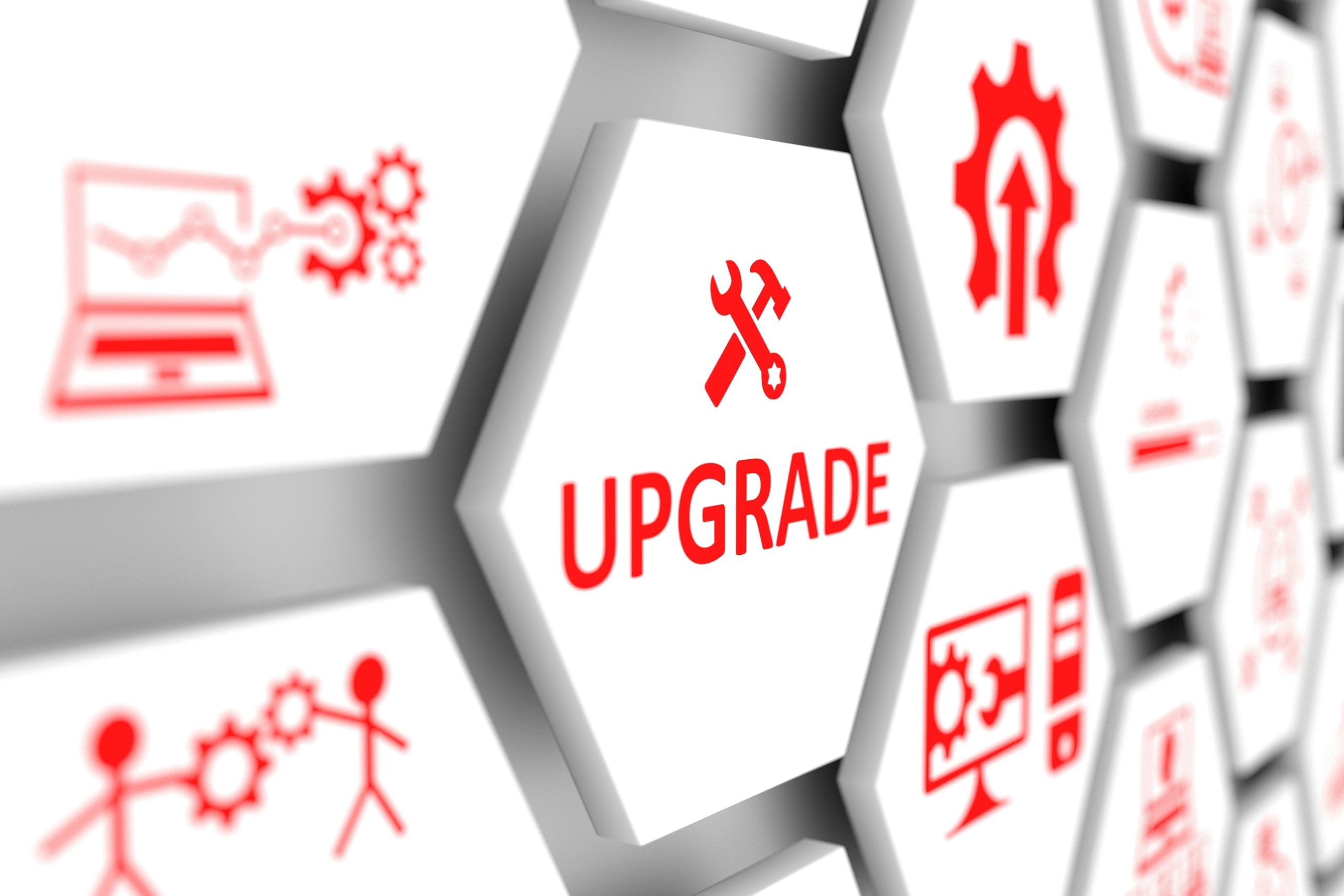
Have you been struggling with an older computer, trying to hold out as long as possible before you have to invest all that money in a new one?
It’s a common crossroads that many people come to at one point or another. They’re not sure if the lost productivity and frustration of an older computer is costing them more than it would to just buy a new PC.
New computers are a big investment, and beyond the device cost itself, there is the time and effort of migrating all your files, email, and programs from one PC to another.
Depending upon the age of your system, there are several things that a computer repair technician can do to speed up and renew an older computer, allowing you to get the best of both worlds. A faster system without a huge investment in time and money.
Before You Replace Your Older Computer, Try These Upgrades
The right type of component upgrade can take your PC from freezing up whenever you multi-task to opening programs quickly and allowing you to work at full speed.
Here are some of the most significant PC upgrades that can give you the most bang for your buck.
RAM (Memory) Upgrade
The random-access memory (RAM) that your computer has inside will have a direct impact on how many programs you can have open at the same time or how efficient multi-tabbed browsing may be.
For example, if you have a system with 4GB of RAM, you can expect freezing problems when you visit websites with multiple ads and videos.
Many computers come with the ability to upgrade your RAM by either replacing the current memory chip or adding one in an open slot. Adding just 8 more GB of RAM to a 4GB PC, will make a significant improvement in performance, speed, and usability.
Upgrade from HDD to SSD
A lot of older computers come with a standard hard disk drive (HDD). It uses moving parts to read and write data and can often be recognized by a “whirring” sound when you’re saving data or opening a program.
A newer drive technology is a solid-state drive (SSD). SSDs use flash memory to read/write data, and do not have any moving parts. This makes them significantly faster than HDDs when it comes to booting, opening programs, and accessing data from your drive.
The read speed for SSD is about 4x faster than HDD.
Improve Your CPU Cooling System
As computers age, their components can slow down and not work as well as they used to. In the case of a cooling system, the hotter your computer gets, the slower and worse performing it becomes.
If you’ve been noticing your PC or laptop running hot or the fan seeming louder than usual (trying to keep up), then one fix that can significantly improve overall performance and stability is to upgrade your CPU cooling system.
Get a New Graphics Card
If your computer is having problems with gaming or video and image editing programs that are graphics intensive, it could be that your old graphics card just can’t keep up.
Try upgrading to a new graphics card designed to handle newer requirements. It can stop problems you’re having when using graphics-rich applications.
Try an Operating System Replacement or Reinstall
Sometimes a sluggish computer can be renewed by either updating or replacing the operating system.
For example, if you are still running Windows 7, you’re at a big security risk because the OS is no longer supported. Upgrading to Windows 10 can provide much needed protection and speed things up.
You could also try something completely different, such as switching to one of the Linux operating systems that use fewer system resources and have a lighter footprint. Linux has come a long way in user friendliness over the years.
Upgrade or Add a New Monitor
If one of your main struggles with your older computer is screen space, then either upgrading to a new monitor or adding a second monitor can help.
Newer monitors can give you better resolution that improves things like color and readability. Adding a second monitor can double (or more) your screen real estate allowing you to drag items from one screen to another as if they were a single large screen.
Have an Inside & Outside Tune-Up
Both internal and external hardware can cause a computer to slow down as it ages. By having both an internal and external tune-up done by a computer pro, you can often fix year-old issues that have cropped up over time with an older device.
A complete tune-up often improves performance, speed, and usable lifespan.
Get Help for Your Older PC from Cris’s Tech Repair
Stop suffering with a slow, older PC and come to us! We’ll take a look at your computer and let you know exactly which upgrades could give it new life.
Contact us today for an upgrade consultation at 561-985-4961 or through our website.
